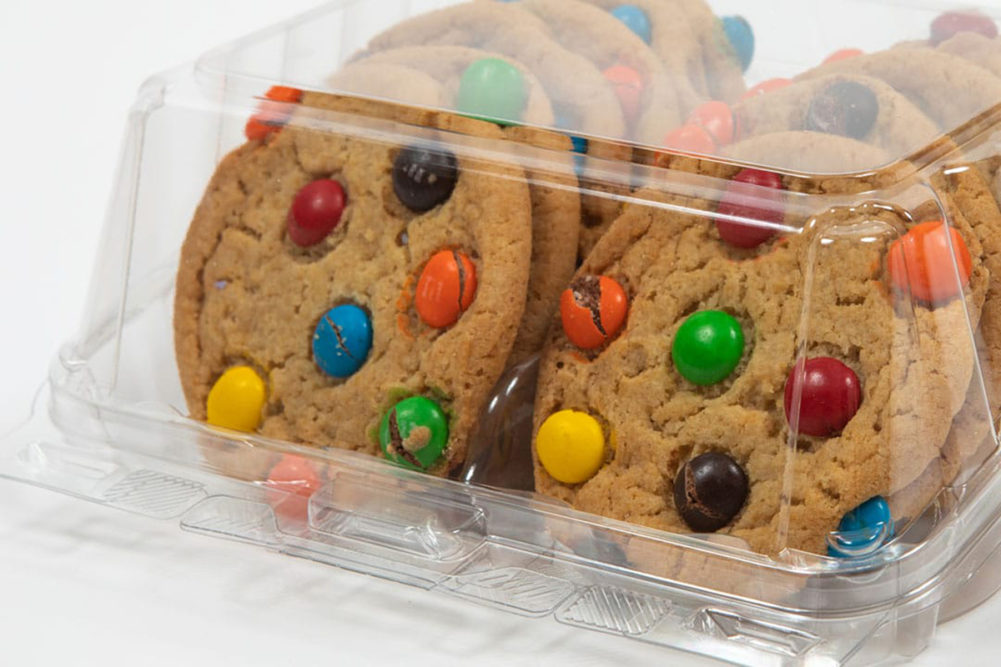The bakery packaging world continues to embrace local and global marketing initiatives in response to consumer demand.
“From our perspective, we see customers willing to continue to onshore bag supply and are more sustainability conscious, meaning they are willing to remove poly windows to get paper recyclability,” said Stefano Giusti, vice president of global packaging for AFC Materials Group, which features paper packaging through its Policarta line for bakery and fresh foods.
Certified recyclable packaging leaves a small environmental footprint.
“At Policarta, we know you work hard to be an industry leader. In order to do that, you need to serve your customer efficiently, safely, and not have a negative environmental impact. The problem is consumables add cost and waste, and words such as sustainable and recyclable are often misused.”
AFC Materials Group is a global provider comprised of four divisions: AFC Industrial, AFC Cooking Solutions, AFC Composites, and Policarta. What started as a small composites business in 1988 has grown significantly over the last 35 years. We pride ourselves on helping guide customers to their production goals, acting with an entrepreneurial spirit, and offering a strong family culture. AFC Materials Group is headquartered in Lake in the Hills, Illinois, with locations in Vermont and Italy.
“We believe you shouldn’t be forced to choose between safety, efficiency, quality, and true sustainability. We understand that it should be about ethics of the food and the environment which is why we have worked hard to create recyclable plastic-free packaging,” the company explains. “The world and the planet are calling for more sustainable packaging.”
Maximum durability
Other innovations in bakery packaging cover the spectrum of customer needs.
Last year, Inline Plastics, the leading manufacturer of innovative and high-quality PET food packaging, announced the opening of a new manufacturing plant in Gladwin, Mich. The facility is up and running under its new Inline banner.
Tom Orkisz, chairman and chief executive officer of Inline Plastics, explains the plant’s large bed thermoforming machines and talented workforce provides Inline with an instant increase in capacity to fulfill customer and consumer demand for food packaging that delivers quality, freshness, and eye-catching merchandising.
Display Pack features bakery packaging suited for a variety of retail needs and product footprints, including cheesecake trays, cupcake and muffin containers, and much more. Display Pack containers offer exceptional clarity, smooth flat surfaces, and maximum durability.
Display Pack’s bakery containers are designed to both showcase and protect your food through every step of the process. Your baked goods and pastries will arrive at stores intact and with the expected level of freshness and quality.
Lindar’s Simply Secure Tamper Obvious Packaging was designed to be both secure and user-friendly. To open Simply Secure Tamper Obvious Packaging, just tear off the unique tab closures. If the tabs have already been removed, customers can be 100% certain that someone has gotten to their baked goods before them.
Lindar recognizes that consumers eat with their eyes first, which is why all thermoformed food packaging containers include a built-in freshness seal and visually appealing design. You can showcase your products in a fresh, attractive, and secure way. Packaging is available in available in two-piece and hinged. Other features include a tamper obvious design with unique tab closures.
Thermoforming is a process that applies heat, pressure, and/or vacuum to form both thin- and heavy-gauge plastics to customized molds. From custom thermoformed packaging to specialized parts for the agricultural, medical, and industrial industries, Lindar’s custom thermoforming processes provide a high-quality, flexible solution for all custom plastic needs.
Lindar uses both in-line and cut sheet thermoforming processes to produce the most elaborate products and plastic components to meet customers’ exact design specifications. The in-line process uses thin rolls of plastic to form disposable products including food containers.

